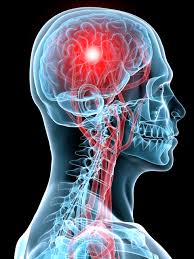
记忆方法
将“concussion”分解为“con”和“cussion”。联想“con”与“concentrate”(集中)相似,表示集中注意力在头部受伤上;“cussion”可以想象为“撞击”(sound like "suction",稍作变化),意味着头部遭受撞击。结合起来,就是“头部集中撞击”,即“脑震荡”。
以上内容由AI生成, 仅供参考和借鉴
英语词源
- concussion
-
concussion: [15] The etymological notion underlying concussion is of ‘violent shaking’; the modern connotation of a ‘jarring injury to the brain’ did not emerge until the 16th century. The word comes from late Latin concussiō, a noun derived from the past participial stem of concutere ‘shake violently’. This was a compound verb formed from the intensive prefix com- and -cutere, an alteration of quatere ‘shake, strike’ (its variant quassāre was the source of English quash and cashier ‘dismiss’, and probably lies behind cascara [19], etymologically ‘bark broken off the tree’).
The verb concuss is 17th-century. The related percussion [16] comes ultimately from Latin percutere ‘strike through’.
=> cascara, cashier, percussion, quash, rescue - concussion (n.)
- c. 1400, from Latin concussionem (nominative concussio) "a shaking," noun of action from past participle stem of concutere "shake violently," from com- "together" (see com-) + quatere "to shake" (see quash). Modern brain injury sense is from 1540s.
权威例句
- 1. Nicky was rushed to hospital with concussion.
- 尼基因脑震荡被火速送往医院。
- 2. He was taken to hospital with concussion.
- 他因脑震荡被送进医院。
- 3. He was carried off the field with slight concussion.
- 他因轻微脑震荡给抬离了现场.
- 4. She suffers from brain concussion.
- 她得了脑震荡.
- 5. She fell off a horse and suffered a concussion.
- 她从马上摔下来,造成了脑震荡。